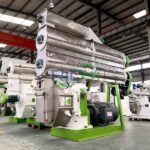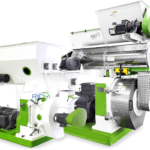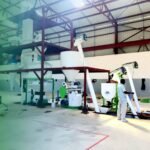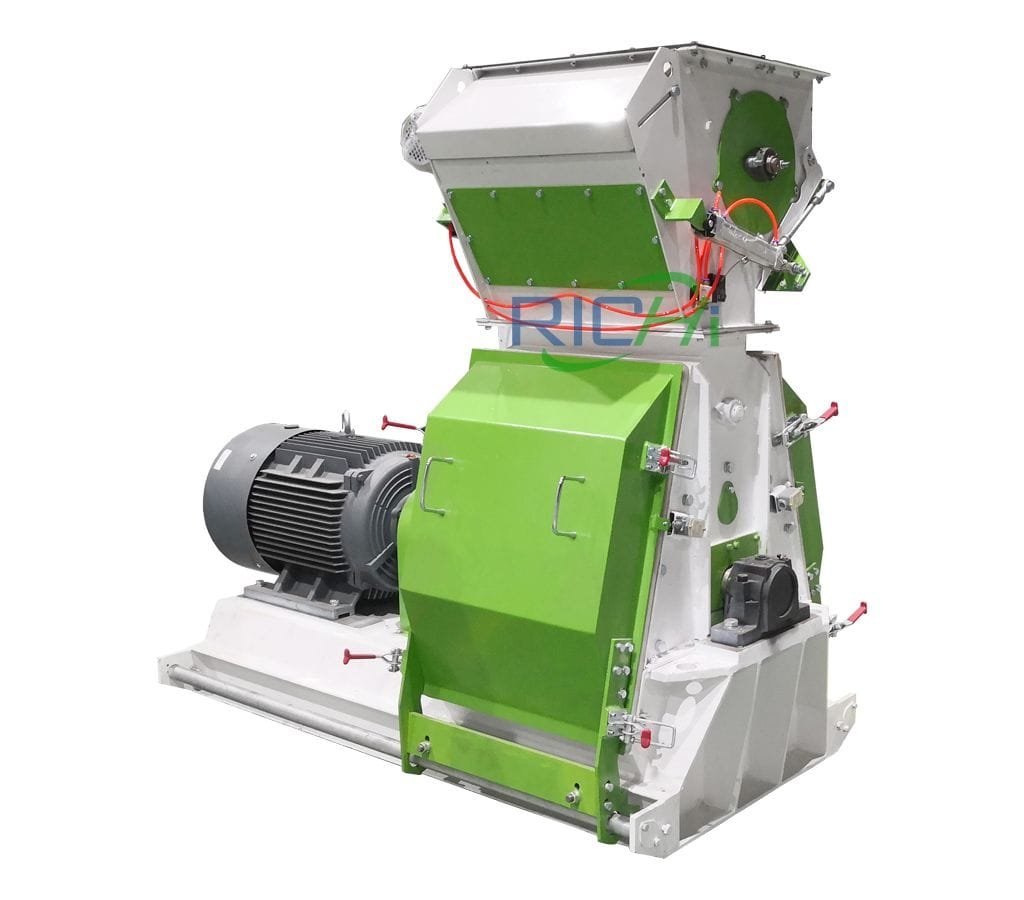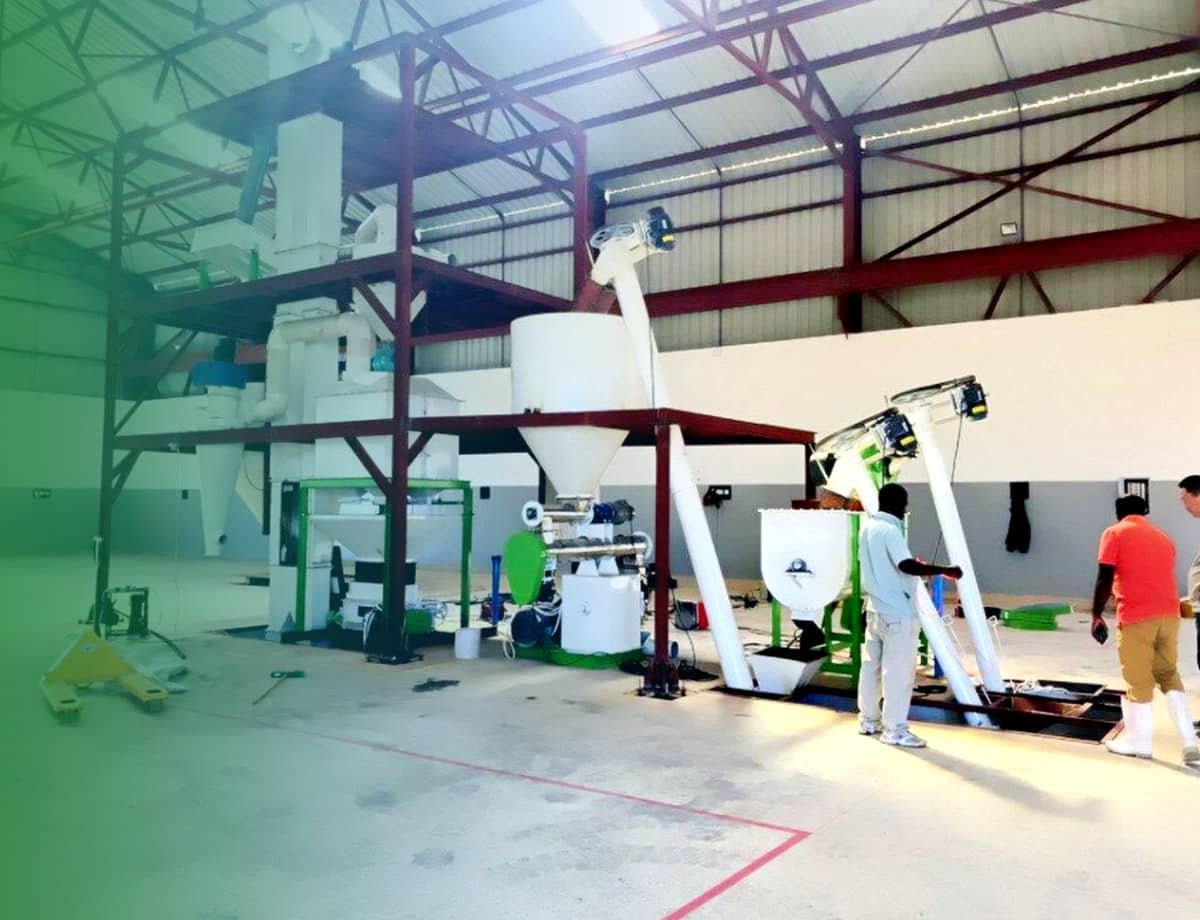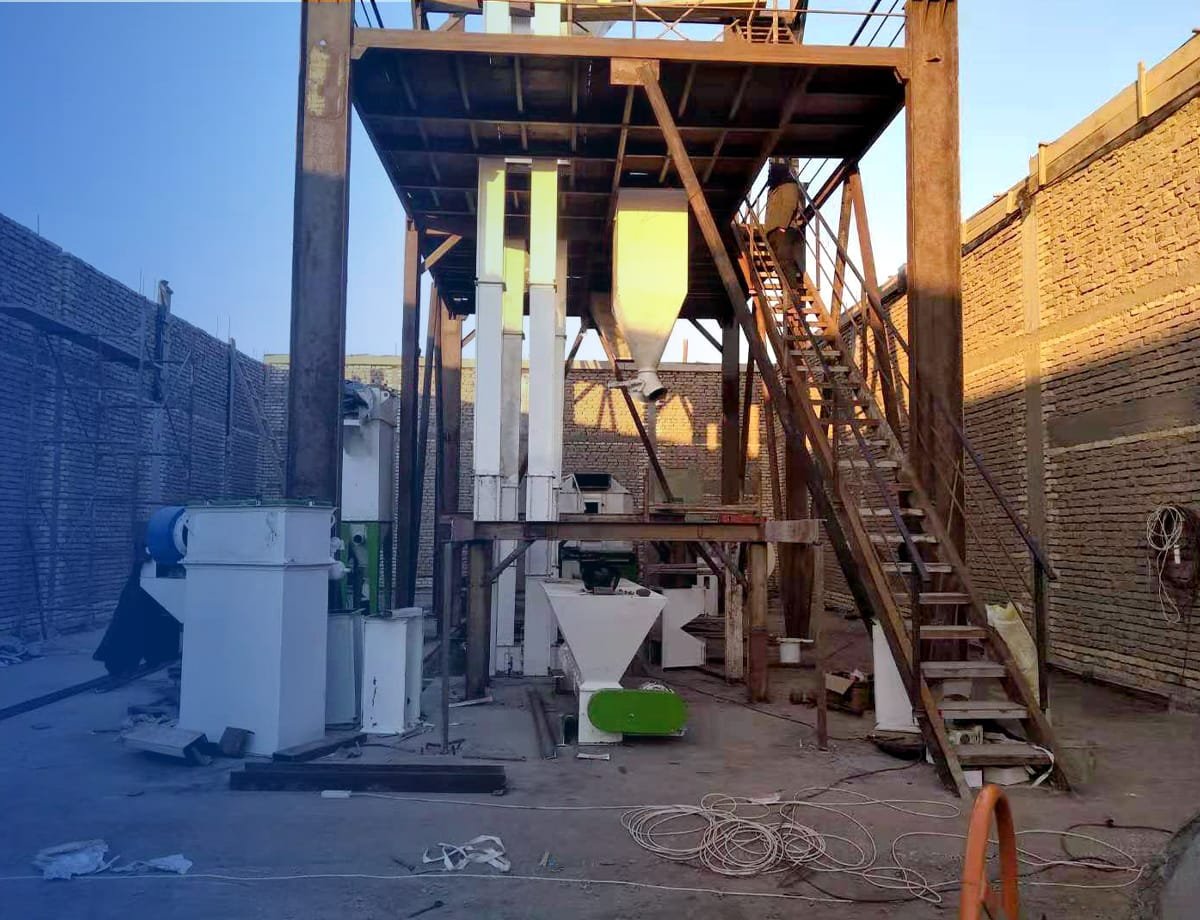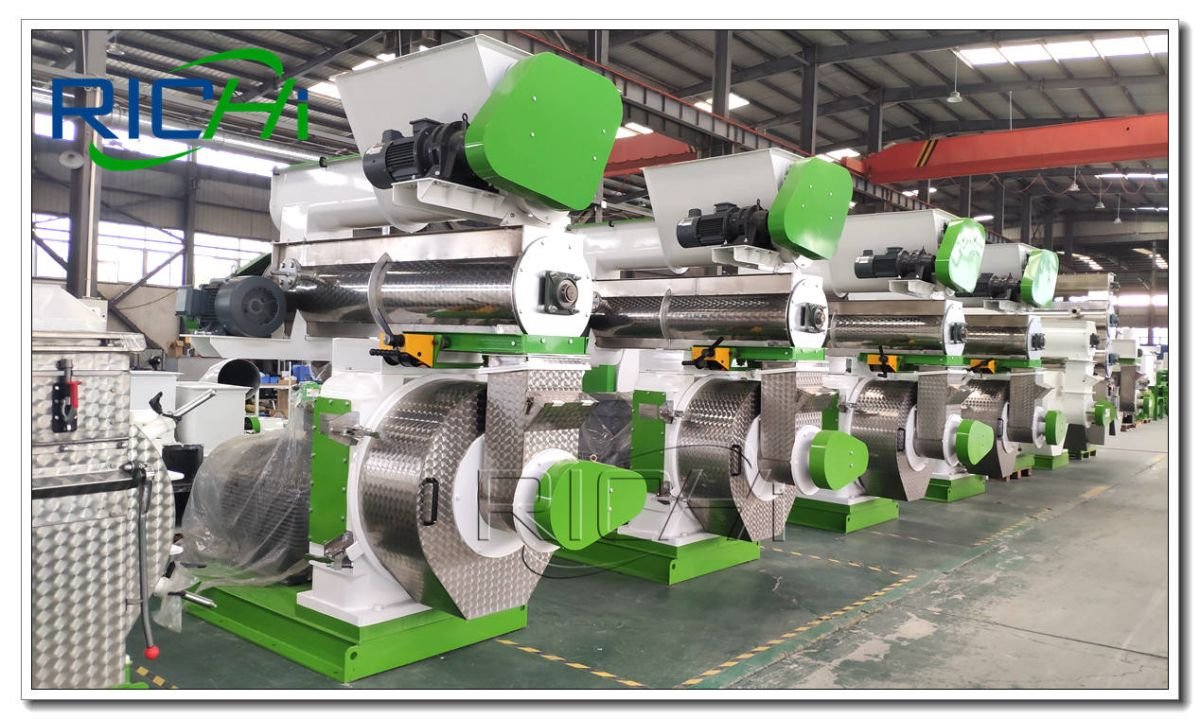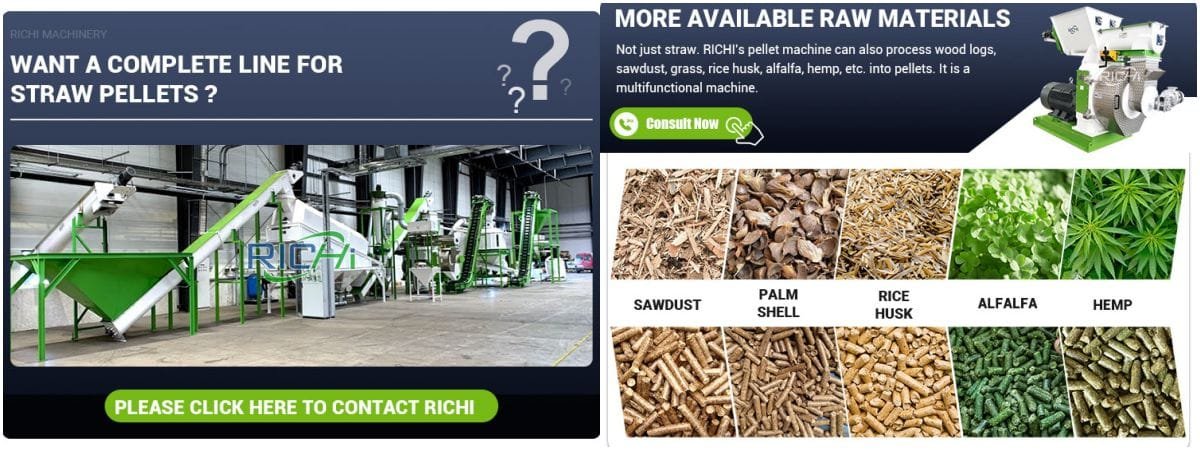Wood pellet hammer mills are vital machines in the biomass processing sector, playing a significant role in the production of wood pellets and other biomass-based products. These versatile devices are engineered to reduce various biomass materials into fine particles, making them suitable for pelletizing. This article delves into the primary application scenarios of wood pellet hammer mills, underscoring their significance in diverse sectors.
Wood Pellet Production
The most prevalent and crucial application of wood pellet hammer mills lies in the wood pellet production industry. In this context, the hammer mill acts as a fundamental component of the pellet production line, processing raw wood materials such as:
- Sawdust
- Wood chips
- Tree branches
- Forestry residues
The hammer mill grinds these materials into a consistent, fine particle size (typically 3-5 mm) that is ideal for pelletizing. This step is essential for producing high-quality wood pellets, which are used in residential heating, industrial boilers, and power generation. For instance, the CF500B wood hammer mill provided by Biopellet Machine can process wood materials at a capacity of 800-1100 kg/h, making it well-suited for industrial-scale wood pellet production. (Related post: pallet chipper)
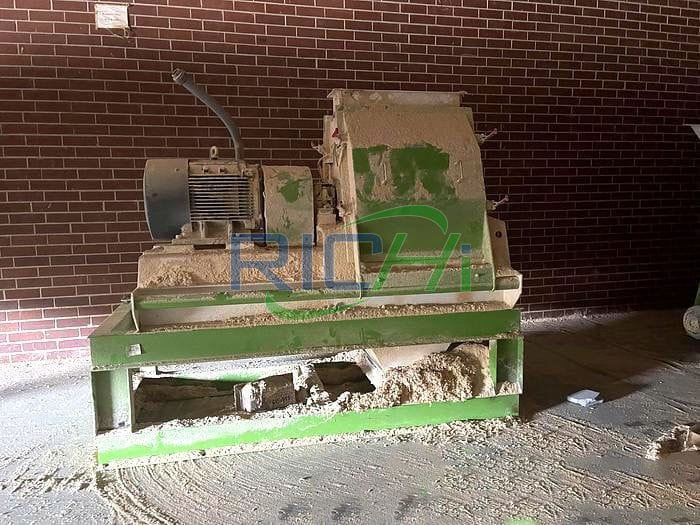
Agricultural Biomass Processing
In addition to wood materials, hammer mills are extensively utilized in the processing of agricultural biomass for pellet production and other uses. Key materials include:
- Straw (wheat, rice, corn)
- Corn stalks
- Cotton stalks
- Other crop residues
Machines like the electric wood hammer mill from Biopellet Machine demonstrate the capability to process a variety of agricultural materials, broadening the scope of raw materials available for biomass pellet production. This application is particularly relevant in regions rich in agricultural residues, providing a way to transform waste into valuable energy resources.
Biofuel Production
Wood pellet hammer mills are instrumental in the broader biofuel industry. They process biomass for various biofuel applications, including:
- Bioethanol production
- Biogas production
- Other bioenergy applications
By reducing biomass to a uniform particle size, hammer mills enhance the efficiency of converting biomass into liquid or gaseous biofuels. This role is critical for the renewable energy sector, helping to decrease reliance on fossil fuels.
Animal Feed Production
While primarily associated with biomass energy, wood pellet hammer mills also find use in the animal feed industry. They are employed for grinding ingredients used in animal feed production, such as:
- Grains
- Hay
- Other feed ingredients
Producing a uniform particle size is vital for ensuring high-quality animal feed, promoting proper nutrient absorption and digestibility. This versatility makes hammer mills valuable assets in agricultural settings beyond mere biomass processing.
Waste Management and Recycling
Wood pellet hammer mills play a significant role in waste management and recycling efforts, especially in processing:
- Urban wood waste
- Construction and demolition wood debris
- Landscaping waste
By reducing these waste materials into usable forms, hammer mills contribute to sustainable waste management practices, converting potential landfill waste into valuable biomass feedstock.
Composting and Soil Amendment
In the composting and soil amendment sectors, hammer mills are used to process organic materials for:
- Creating compost mixtures
- Producing soil amendments
- Processing garden waste
The fine particles generated by hammer mills decompose more rapidly, expediting the composting process and resulting in higher-quality soil amendments.
Pulp and Paper Industry
The pulp and paper sector utilizes wood pellet hammer mills for:
- Processing wood chips for pulp production
- Recycling paper products
- Preparing biomass for co-firing in paper mills
This application optimizes raw material usage and supports sustainable practices in the paper industry.
Biomass Co-firing in Power Plants
Numerous power plants are adopting biomass co-firing to minimize their carbon footprint. Wood pellet hammer mills are essential in this scenario for:
- Preparing biomass for co-firing with coal
- Processing various biomass sources to meet power plant specifications
This application is crucial in the shift toward cleaner energy production within existing power infrastructures.
Conclusion
Wood pellet hammer mills exhibit remarkable versatility across a range of industries and applications. From their primary function in wood pellet production to diverse uses in agriculture, biofuel production, waste management, and beyond, these machines are integral to the efficient utilization of biomass resources.
The adaptability of wood pellet hammer mills to process different materials and produce consistent particle sizes makes them indispensable in the expanding biomass and renewable energy sectors. As industries increasingly seek sustainable practices and alternative energy sources, the importance and range of applications for wood pellet hammer mills are likely to broaden further.
For businesses engaged in biomass processing or those considering entering this field, comprehending the diverse applications of wood pellet hammer mills is vital. It not only highlights the equipment’s versatility but also opens up potential avenues for diversification and value addition in biomass-related industries.
For details please contact: pellet mill for sale
WhatsApp:86 138 3838 9622
Email:enquiry@richipelletmachine.com


